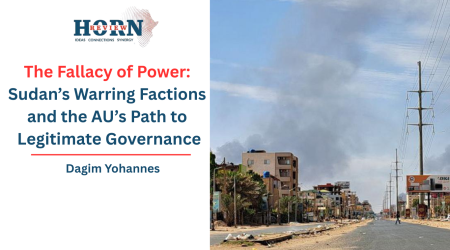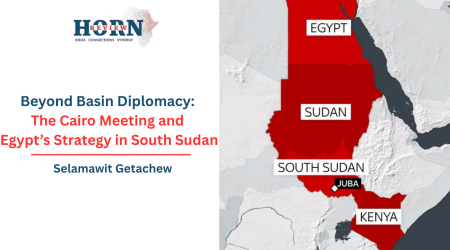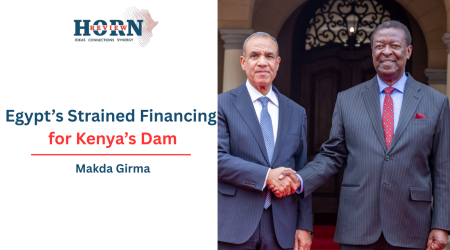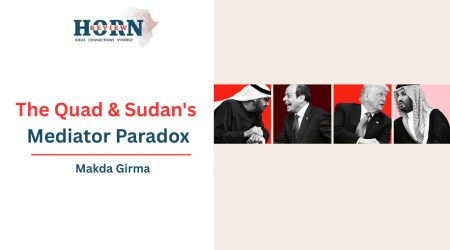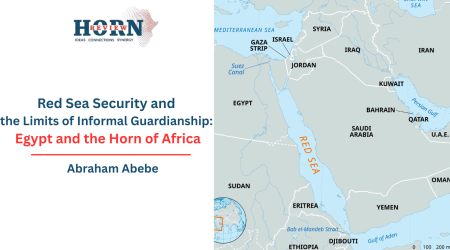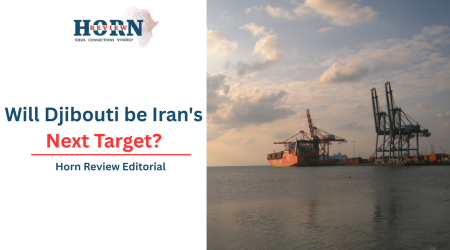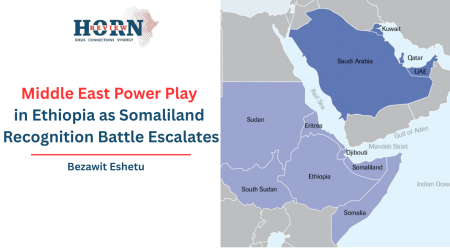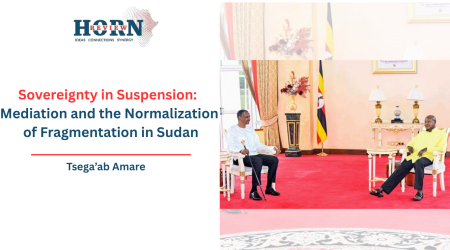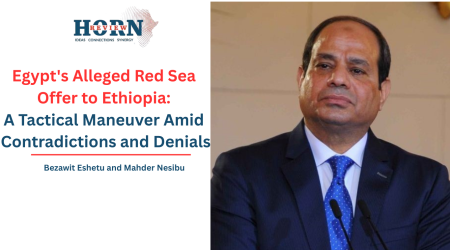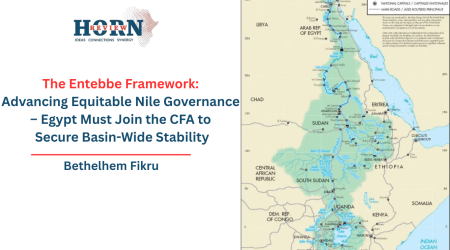
18
Feb
Egypt’s Bold Encirclement Strategy: A Power Play That Could Shake the Horn of Africa
The Horn of Africa has always been a region of strategic importance, with Ethiopia playing a central role in shaping its political, economic, and security landscape. However, recent developments suggest a shift in the region’s power dynamics, particularly with Egypt’s increasing presence. Egypt, which has long had contentious relations with Ethiopia over issues like the Nile, is now seemingly pursuing an encirclement strategy, aimed at weakening Ethiopia’s position by forging closer ties with its neighboring states.
This encirclement policy refers to Egypt’s efforts to surround Ethiopia through military agreements, economic partnerships, and diplomatic engagements with Eritrea, Djibouti, and Somalia. These maneuvers are seen as deliberate actions to isolate Ethiopia, which has historically been the central stabilizing force in the Horn of Africa. Egypt’s strengthening influence in the region has raised concerns that its actions are designed to limit Ethiopia’s strategic options and undermine its regional standing.
One of the most significant developments is Egypt’s increasing military presence in Somalia. As a key contributor to the African Union Stabilization and Support Mission in Somalia (AUSSOM), Egypt has positioned itself as a major player in the Horn, while Ethiopia has been notably sidelined. By publicly supporting Somalia’s sovereignty and territorial integrity, Egypt is subtly positioning Ethiopia as a destabilizing force, further exacerbating tensions.
In addition to its involvement in Somalia, Egypt has also deepened its relationship with Eritrea, a country with which Ethiopia has had strained relations. A recent bilateral agreement between Egypt and Eritrea focused on regional security and stability excluded Ethiopia, signaling a shift away from the collaborative approach that had previously characterized the Horn’s geopolitics. The growing closeness between Egypt and Eritrea raises alarms in Ethiopia, which has long considered Eritrea a rival in regional influence.
Egypt’s outreach extends beyond Eritrea and Somalia. In a recent development, Egypt and Kenya signed a strategic agreement aimed at enhancing bilateral relations, particularly concerning Nile water management. This agreement also includes fostering economic cooperation, positioning Egypt to strengthen its influence over regional trade and water resources, with direct implications for Ethiopia’s access to the Nile.
Moreover, Egypt’s partnership with Djibouti, particularly in the maritime domain, reflects its broader ambitions to solidify its control over critical trade routes and regional ports. By enhancing port integration, Egypt aims to establish a dominant presence in East Africa’s key logistical hubs, further excluding Ethiopia from influential maritime discussions.
The question remains whether Egypt’s encirclement strategy will succeed in isolating Ethiopia or whether Ethiopia’s central role in the region will prove too resilient to undermine. Ethiopia’s contributions to peacekeeping, stability, and economic growth in the Horn cannot be disregarded, and any strategy that overlooks its role may face significant challenges.
Ultimately, Egypt’s renewed presence in the Horn of Africa represents a shift in regional dynamics, with implications for the future of East African cooperation and security. Ethiopia, as a pivotal actor, will likely need to adapt to this new geopolitical reality, balancing its own interests with the need for regional collaboration in an increasingly complex environment.

